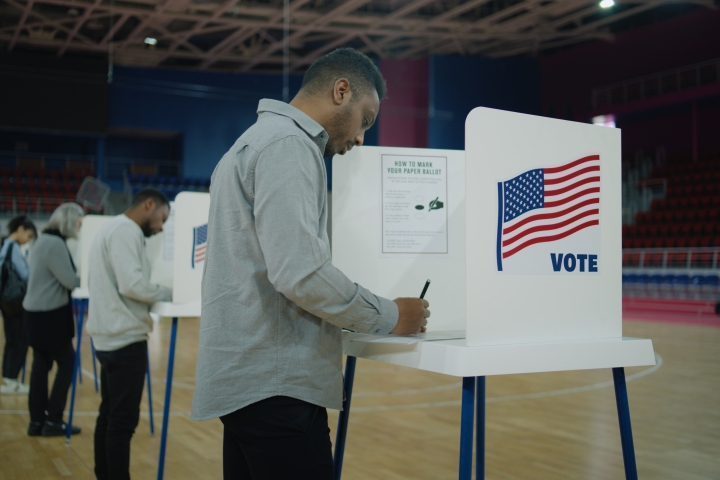Following the 2024 U.S. presidential election, in which Republican Donald J. Trump defeated Vice President Kamala Harris, Democrats felt no differently toward Republicans and Republicans felt no differently toward Democrats. Ill will toward the other party, despite a contentious election, remained unchanged.
Americans, however, did change how they saw their own party. Democrats viewed their own party 5% more negatively, while Republicans viewed the GOP 5% more positively, according to the Polarization Research Lab’s year-end report on how the election changed American attitudes about democracy.
Following the election, Republicans, who already held the House, will return to power as Democrats lost both the White House and control of the Senate.
“Losing an election didn’t change how partisans saw the other side but it did change how partisans saw their own party,” says Sean Westwood, director of the Polarization Research Lab and an associate professor of government. “I think what’s really important is that we find that Americans evaluate democracy less on objective criteria and more based on how well their party did.”
Demonstrating this point, Democratic confidence in the outcome of the election dropped by 8 percentage points, from 28% to 20%, while Republicans’ confidence surged by almost 50 percentage points, from 14% to 63%.
Republican confidence in the outcome of the 2024 election is effectively the mirror image of where it was in 2020. Similarly, Democrats’ confidence in the election was higher in 2020 when their presidential candidate, Joe Biden, won.
“These results suggest that views on democracy are entirely dependent upon if a party wins or loses an election,” says Westwood.
Americans still have a great deal of confidence in the electoral system. And post-election responses show zero support for political violence or anti-democratic norms, which is consistent with pre-election data.
The results are based on a series of weekly surveys of 1,000 respondents conducted by the Polarization Research Lab from September 2022 through the November election to evaluate attitudes regarding partisan animosity, political violence, anti-democratic norms, and trust in political institutions. More than 124,000 responses were obtained from 75,000 respondents.
“The next four years will challenge our institutions, our rules, and our democratic norms,” says Westwood. “We will continue to track the views of citizens and the actions of elected officials to give the public a real-time understanding of where their democracy is headed.”
